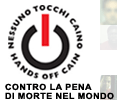|
EUROPEAN STATES CONTINUE TO FUND DRUG HANGINGS AS IRAN EXECUTIONS SPIKE
July 2, 2015: New analysis released today by NGO Iran Human Rights shows that over two thirds of the 570 people so far executed in Iran this year were sentenced to death on drugs charges.
The executions can be linked to funding for counter-narcotics programmes provided via the UN Office on Drugs and Crime (UNODC) and funded by European states including France and Germany.
International human rights NGO Reprieveâs research shows that France has provided more than EUR 1 million to Iranâs Anti Narcotics Police (ANP) in recent years; while Germany contributed to a EUR 5 million UNODC project which provided the ANP with training and equipment.
The UNODC projects aim to increase the numbers of people arrested and convicted of drugs charges, but do not impose effective conditions to ensure that the financial support does not contribute to increased numbers of hangings. With Iran now executing at a historically high rate, and 69% of the executions this year so far having been for drugs offences, Reprieve is calling on the UNODC and its funders to act urgently to impose conditions on the support they provide.
A number of other European states, including the UK, Denmark and Ireland have already withdrawn funding from similar UNODC programmes in Iran, with the Danish Government accepting they are âleading to executionsâ. But France and Germany have declined to make similar commitments, and have not ruled out contributing to a secretive new UN funding settlement for Iranâs ANP.
The UNODC is currently negotiating this five-year agreement, and UNODC chief Yury Fedotov travelled to Iran in February this year to pledge that a deal would be finalised âin the next two monthsâ. He added that âno country can compete with Iran when it comes to the amount of narcotics discovered and seized.â
Reprieveâs research has found that at least EUR 15 million in European support can be directly linked to the arrests and hangings of thousands of people â including women, children, and a number of European nationals. In one 2014 case, a 15-year old Afghan boy, Jannat Mir, was hanged for allegedly moving heroin across the Afghan/Iranian border, during a period in which the UNODC was overseeing a 5 million EURO border operation.
The UNODCâs own human rights guidance advises that if executions for drug related offences continue, the body should âemploy a temporary freeze or withdrawal of supportâ.
Maya Foa, Director of Reprieveâs death penalty team said:
âEven as Iranâs execution rate skyrockets, European nations like France and Germany continue to fund brutal raids by the Iranian police which routinely send people to death row for non-violent offences. 7 out of 10 people hanged in Iran this year have been caught in these type of operations, but European funders and the United Nations Office on Drugs and Crime continue to turn a blind eye, and are even considering a new funding deal.
âIt is an untenable hypocrisy for European countries and the UNODC to claim they oppose the death penalty in all circumstances while enabling and encouraging it overseas. If their commitments on the death penalty are to count for anything, they should impose effective and transparent conditions to ensure their aid does not lead to executions.â (Source: Reprieve, July 2, 2015)
|

